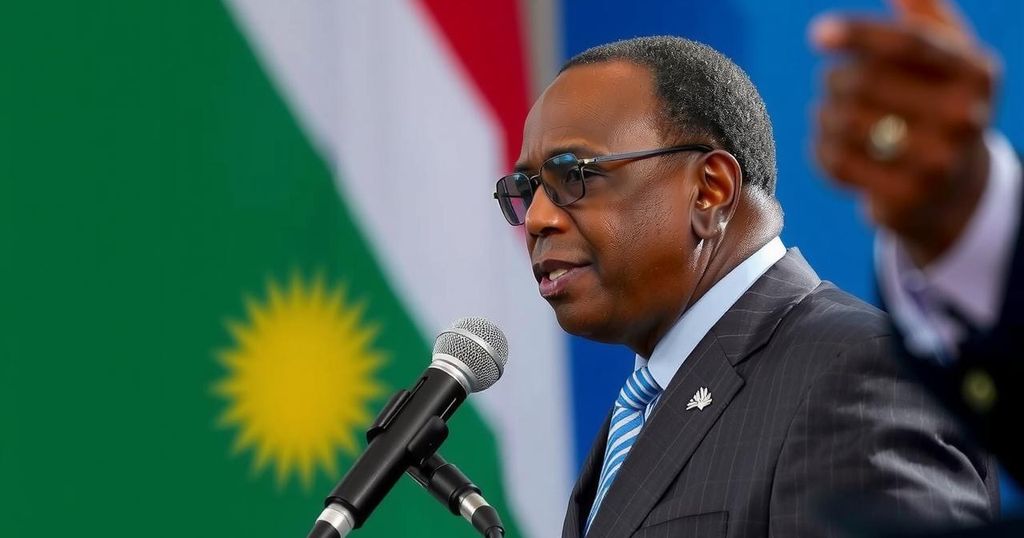Botswana President Concedes Election Defeat, Ending BDP’s Six-Decade Dominance

Botswana President Mokgweetsi Masisi has admitted defeat in the recent elections, resulting in the loss of his party’s parliamentary majority after nearly 60 years in power. The opposition coalition, Umbrella for Democratic Change, led by Duma Boko, appears poised to claim the presidency. Preliminary results show that the BDP secured only one seat out of 36 counted, emphasizing a significant political shift. The new administration will need to address economic challenges, particularly due to a downturn in the diamond market.
In a historic shift, Mokgweetsi Masisi, the President of Botswana, has acknowledged his defeat in the recent elections, marking the end of his party’s longstanding dominance in the nation’s politics. Preliminary results indicate that the ruling Botswana Democratic Party (BDP), which has held power since the country’s independence in 1966, lost its parliamentary majority, as reported by the private Mmegi newspaper and state radio. The opposition coalition, known as the Umbrella for Democratic Change (UDC), appears to be leading in the election, with its figurehead, lawyer Duma Boko, on course to assume the presidency. Although Boko has not yet commented publicly on his impending victory, President Masisi stated during a press conference, “Although I wanted to stay on as your president, I respect the will of the people and I congratulate the president-elect. I will step aside and I will support the new administration.” With results from 36 out of the 61 constituencies accounted for, it has been reported that opposition parties have won over half of the parliamentary seats; the BDP reportedly managed to secure only one seat among these. According to Mmegi, the UDC has captured 25 seats, whereas a party typically requires 31 seats to maintain a majority. The outcome signifies a significant political transition in Botswana, which is renowned for its stability and relative prosperity attributed to its rich diamond resources and small population. However, the nation has faced economic challenges due to a downturn in the diamond market, prompting difficulties in diversifying its economic base. The impending change in leadership suggests a pivotal moment for Botswana as it navigates these challenges.
Botswana has been governed by the Botswana Democratic Party (BDP) for nearly six decades since gaining independence from British colonial rule in 1966. The nation’s political landscape has recently become increasingly competitive, as seen in the latest elections where the opposition coalition, Umbrella for Democratic Change (UDC), garnered substantial support. The political stability afforded by the BDP’s long tenure has been complemented by the country’s diamond wealth, which has underpinned its economy. Consequently, Botswana has enjoyed free healthcare and education for its citizens; however, recent fluctuations in the diamond industry have strained state revenues, highlighting the pressing need for the country to diversify economically. This election marks a significant chapter in Botswana’s democratic history, potentially reshaping its governance and economic strategy in the wake of the BDP’s unexpected defeat.
The recent electoral defeat for President Mokgweetsi Masisi and the Botswana Democratic Party signifies a transformative moment in Botswana’s political history, concluding a near six-decade rule. The substantial gain by the opposition coalition, the Umbrella for Democratic Change, indicates a shift in voter sentiment and political power. Furthermore, as the country grapples with economic challenges stemming from a decline in diamond revenues, the incoming leadership will face the imperative task of formulating strategies for sustainable development and economic diversification. This election not only marks a critical transition in governance but also opens new avenues for addressing Botswana’s future economic resilience and prosperity.
Original Source: www.theguardian.com







